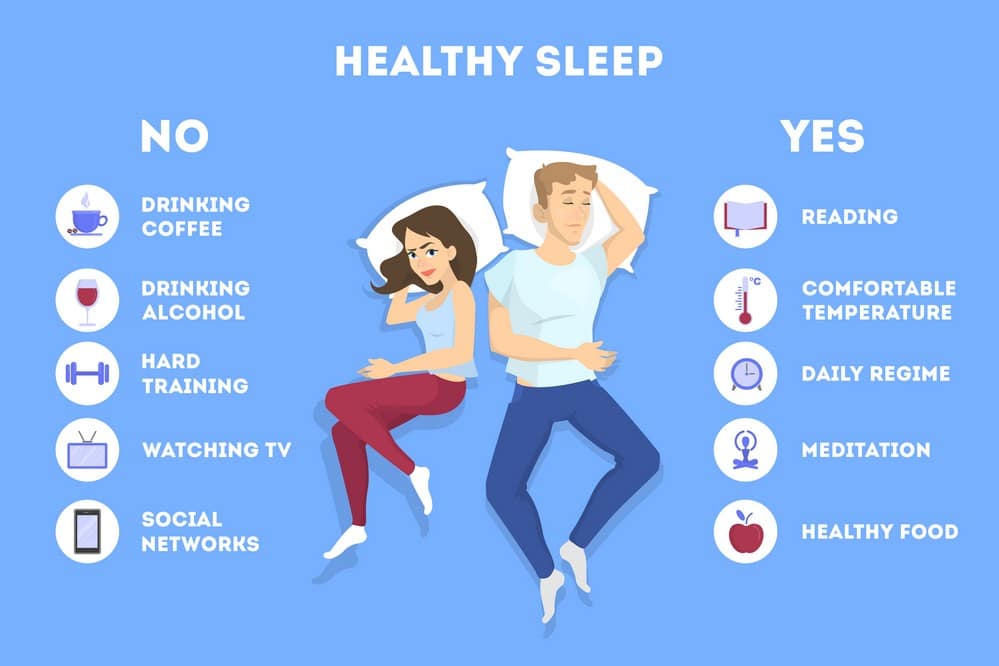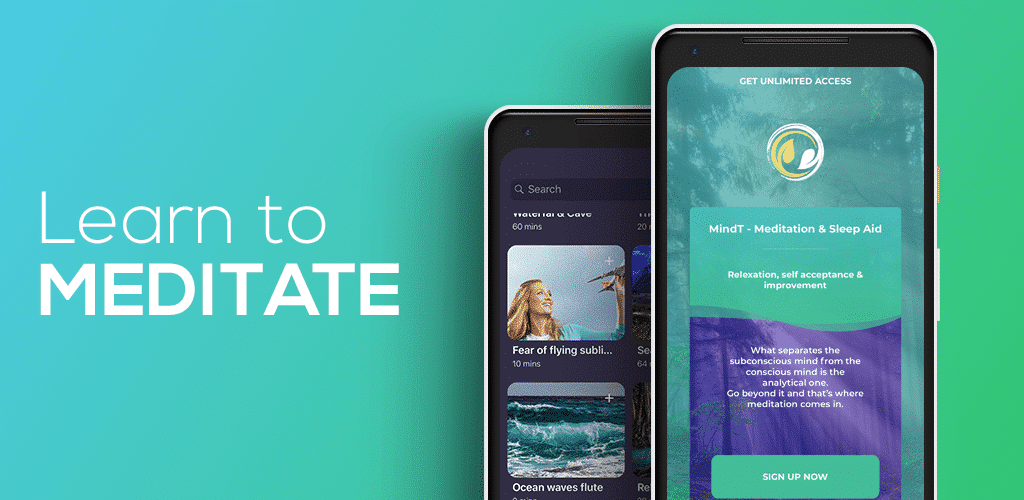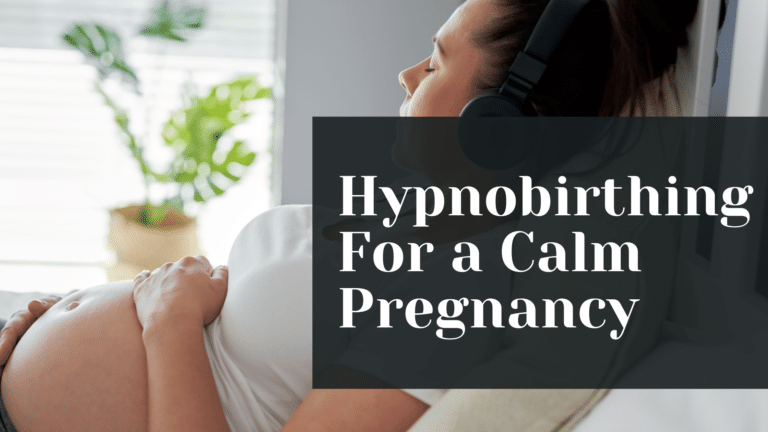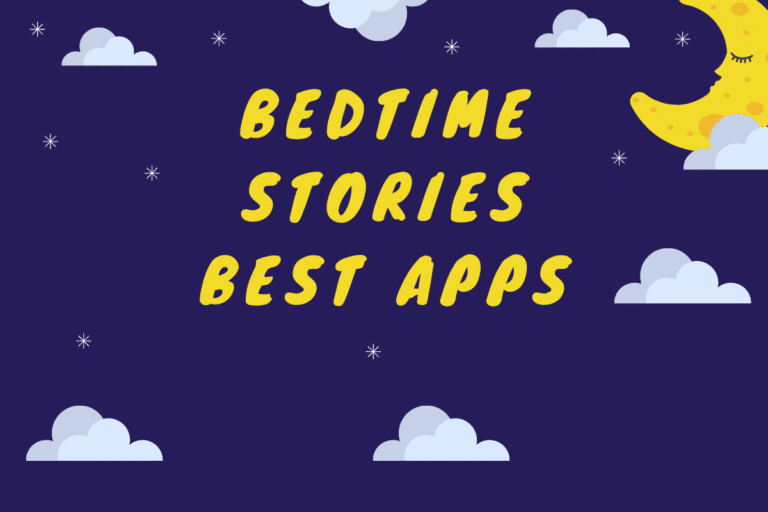How Meditation For Insomnia Can Help You Sleep
Published on February 25, 2020 – Last Updated on May 7, 2022
Sleep is one of the most important things for our health, yet sometimes it eludes us. In fact, insomnia is becoming an epidemic. Statistic draws a grim picture of just how many people are affected by insomnia:
- 1 in 4 adults can develop insomnia (That equals about 60 million Americans)
- In the UK, approximately 16 million (31%) say they suffer from sleepless nights
The most common type of sleep disorder is insomnia. It can be caused by stress, depression, anxiety, poor diet, medications, or overtired. The best way to deal with this issue is to improve your body’s natural ability to fall asleep and stay that way.
Scientists have been researching the causes of insomnia for a long time, and they concluded that many factors can affect our sleep and may cause problems:
Stress High level of stress harms the whole body. Our minds and bodies produce the stress hormone cortisol, which remains in our body for about 90 minutes after the situation that caused it is over. This high cortisol level can continue to stimulate brain activity, resulting in the inability to sleep. Alcohol Although sleeping pills are highly used by people who have trouble sleeping, alcohol disrupts your sleep cycle and may even worsen your problem with falling asleep.
What Causes Insomnia?

You can learn how to have a good sleep at night. List of must-do to help you beat insomnia infographic. Helpful tips brochure for a healthier sleep. Follow the tips for a good night’s sleep.
A lot of different things can cause insomnia. There is no one cause for insomnia, and you can have it temporarily, or it can be a permanent condition. These are some of the leading causes of insomnia:
Stress, Anxiety, and Depression
Stress, anxiety, and depression are probably the three leading causes of insomnia. Stress can be temporary or chronic. You can experience stress for many reasons, including:
- A bad breakup
- Financial problems
- School or work demands
- Relationship problems
- Home environment
Stress affects everyone, and it is becoming an epidemic among the young adult population due to work, school, life, and family obligations. In addition, anxiety helps contribute to fear and worry, and depression adds a sense of hopelessness.
Illness or other Medical Problems
There are a variety of health conditions that can contribute to insomnia. Chronic pain is one of the leading medical causes of insomnia; however, conditions like asthma, kidney disease, cancer, Parkinson’s’ disease, and hypothyroidism can also contribute to trouble sleeping.
Medications
Several medication classes can cause insomnia. These can include:
- ADHD medications (a stimulant)
- Blood pressure medications
- Corticosteroids
- Over the counter cold and flu medications
Sleep Disorders

Insomnia art graphic
Certain sleep disorders can also cause insomnia. For example, restless leg syndrome or sleep apnea are conditions that cause sleeplessness and things like shift work or jet lag, which breaks the circadian rhythm.
Too much screen time on devices may be another contributor. The blue light emitted from the screen tricks the body into thinking it’s still daylight. This affects whether melatonin is released to bring on sleep. Again, cutting down on device use before bed can help.
Why is Sleep so Important?

A young woman enjoys a healthy sleep while drifting on a cloud
For those who don’t get enough sleep. The answer is a resounding no! Sleep is vital to healthy body function. Not getting the right amount of sleep can lead to chronic conditions like heart disease and high blood pressure.
Not getting enough sleep can also lead to obesity.
If this isn’t’ enough to persuade you, here are some other reasons you should focus on getting more sleep.
Your Brain Needs A Break
Your brain gets tired too after working all day. However, when you sleep, your brain also relaxes. It uses that time to repair itself and create new neuropathways that prepare you for the next day.
If you’re’ not sleeping at night, your brain can’t’ function well. As a result, you may forget things and won’t’ be able to focus on what you need to get done.
Your Body Needs to Repair
While you sleep, your cells work diligently to repair the blood vessels and the heart. If you continually get deprived of sleep, you put yourself at a greater risk for heart disease, kidney malfunction, and stroke.
Sleep also affects your hormones. When you don’t’ get enough sleep, your body releases more of ghrelin’s hunger hormone. As a result, you feel hungry all the time and tend to crave sugary foods. This makes you gain weight, but you are at risk of getting diabetes because your insulin gets overworked.
You are Not as Productive at Work or at School
When you don’t’ get enough sleep, you have a hardcore challenge focusing and completing tasks. You also lose your motivation to get work done. Another consequence is that you tend to feel more stressed out when you don’t’ get enough sleep and maybe irritable. You might even fall asleep in a meeting or the classroom!
How a Meditation Can Help You Fight Insomnia

Learn how to beat insomnia using meditation
Now that we’ve looked at why you need sleep let’s look at how you can get more sleep. If you are not getting enough sleep or suffer from insomnia, changing some of your lifestyle habits may contribute to getting a better night’s rest, especially when you follow a bedtime routine.
Meditation, in general, is a good habit to incorporate into your lifestyle. It can help relieve stress and benefit you in many other ways. You can also use meditation to help you fall asleep and stay asleep.
Researchers are finding that meditation helps with sleep issues. A study published in JAMA took 49 participants who had sleep difficulties and divided them up into two groups. The first group was taught about mindful focus and meditation. The second group was educated about sleep and how to improve it.
After the six sessions, the mindfulness group had fewer insomnia and sleep problems than the education group.
In another study, researchers followed a patient treated with Mindful Based Therapy (MBT-I), including meditation for insomnia. The patient was having trouble staying asleep.
The patient was a worrier and would have thoughts that prevented her from going back to sleep for some time. By practicing mindful meditation, the patient could double her time sleeping by learning to clear her mind of her worrying thoughts.
How Does Meditation Help You Sleep
Most people have insomnia due to stress. Meditation can help you sleep in two ways.
Meditation helps you learn to clear your mind and focus on the moment. That means when you are lying in bed with your thoughts racing, through meditation, you learn to let those thoughts go. Yes, they exist, but by letting them go and concentrating on your breathing or an ambient sound, you allow your mind to relax and start winding down.
As your mind relaxes, so does your body. The day’s tension is released, and your muscles begin to relax. The relaxation of the mind and body starts at the beginning of the sleep cycle.
How A Meditation App Can Help

Mindtastik is a guided meditation app that will help you beat insomnia. Browse our entire collection of sleeping aid meditations and enjoy a healthier sleep.
A meditation app can help you relax both your mind and your body by:
- Quieting an active mind and releasing tension
- Use breathing to help the mind settle down
- Allows you to accept what is happening in your life and view it objectively
- Helps you learn how to fall asleep
Choosing a Focus
Bedtime meditation can come in several different forms that allow you to choose your focus instead of focusing on the day’s problems.
Breathing Meditation for Insomnia
This type of meditation can be guided or unguided. The focus is on breathing or even a mantra to help you clear your mind of thoughts. The thoughts will come, and you gently let them go.
Ambient Sounds to help stop your Insomnia
Ambient sounds give you a sound to focus on to take your mind away from the stresses of the day. The sounds can range from nature sounds such as water, rain, ocean, birds, or crickets to music to white noise. Naturally, you choose the most soothing sound.
By concentrating on ambient and relaxing sounds, your breathing slows down, and your body relaxes because you are listening to something that soothes you helping you fall asleep.
Bedtime Stories
Bedtime stories are just that. They are relaxing stories read by a narrator with a calming voice. You can close your eyes and picture the story in your mind.
A bedtime story takes your worrying thoughts away and replaces them with the story’s vision. Finally, your mind relaxes, and you fall asleep.
These types of meditations allow you to acknowledge the thoughts that come into your head and say to yourself, “Yes, here comes another thought. I’ll’ just take a deep breath and push it away” You can even imagine the thought floating away as you concentrate on your meditation.
There is no wrong way to meditate, and the more you do it, the better you will get at letting go. The point of the meditations is to help you stop thinking about the wrong things and start concentrating on the present moment.
How to Overcome Insomnia
Using Meditation
There are two basic types of meditation you can use to overcome insomnia. There is the quieting your mind type and the distraction type.
Quieting Your Mind Meditation
The more relaxed you are, the easier it will be to fall asleep. Meditation helps by allowing your body to relax while calming your mind. You will learn to quiet your thoughts and stop worrying about the day or whatever is on your mind making you restless.
Distraction Meditation
This type of meditation allows you to focus on something else besides the racing thoughts in your head. Instead, concentrate on something calming, like your breathing; it distracts you from the worries of the day.
By concentrating on something else, the racing thoughts will not be able to take control of your mind.
The more you meditate, the better you will get at letting go. By helping your body relax and calming your mind, you can stop worrying about whatever problem keeps you up and start sleeping again.
Apps That Will Help You Go To Sleep
There are many meditation apps available on the market. The problem with these apps is that they are not personalized. Instead, they have set meditations that you can read or listen to at your own pace, but you have no control over the intensity of the reflections.
You need a personal meditation app that has been created just for you. The app will allow you to choose your meditation and set how long it lasts to get the perfect amount of meditation to help with insomnia.
Meditations for Insomnia Personal Meditation App
The app comes with many different mediations such as ambient sounds, bedtime stories, breathing meditations, and distraction meditations.
The app will allow you to set how long it lasts and even the time your meditation for you when you choose mediation. By adding breathing and distraction meditations, you can help your body relax and let go of the racing thoughts in your head at night when trying to fall asleep.
There is also an option for you to record your voice to have a bedtime story personalized for you. It is incredible how much easier it is to fall asleep when listening to the sound of your loved one’s voice telling you a soothing story before bed.
Conclusions on Insomnia & Sleep Disorders Relief Solutions
If you struggle with insomnia and sleep disorders, we recommend checking out the input. This article provides excellent information on overcoming these issues using meditation as your solution. We loved all of the different types of meditations available in this app- it seems like there is one for everyone! So, if you’re looking for help overcoming sleepless nights, give this post a read before downloading the free app today.





